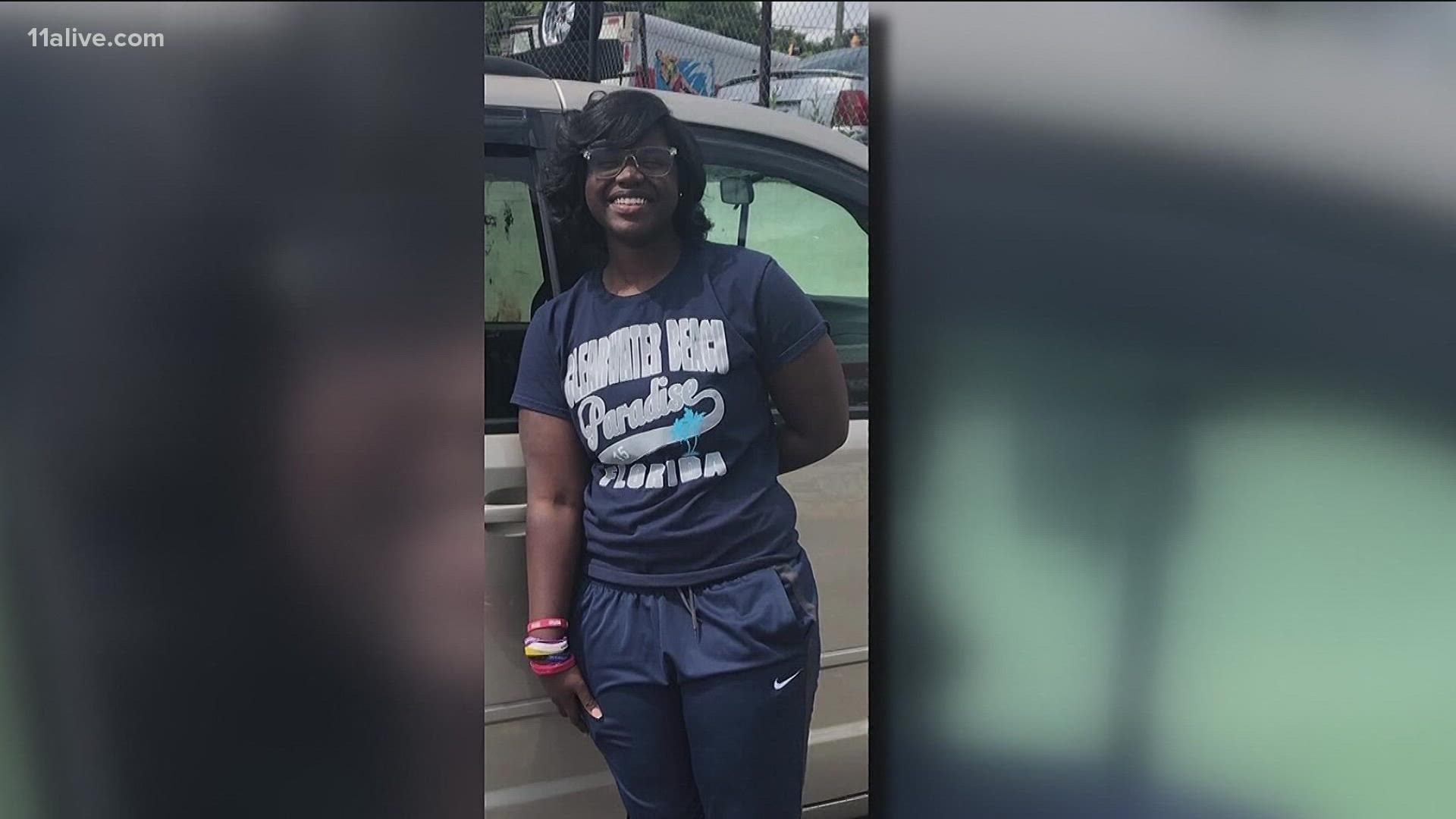CLAYTON COUNTY, Ga. — One year after a Clayton County teenager died following a high school basketball practice, her head coach began teaching at a nearby Fulton County charter school.
Imani Bell died on August 13, 2019.
In a social media post on August 12, 2020, the Main Street Academy in College Park announced LaRosa Asekere as the school's new 8th-grade mathematics teacher.
She had previously taught mathematics at a Clayton County middle school.
Last month, a Clayton County grand jury indicted Asekere, along with Dwight Palmer, with second-degree murder, second-degree child cruelty, involuntary manslaughter, and reckless conduct.
In a wrongful death lawsuit previously filed by the Bell family, Asekere was identified as the Elite Scholars Academy head girl's basketball coach at the time of Bell's death. Palmer was identified in court documents as an assistant coach. The pair were arrested in July and each was later released from jail on $75,000 bonds.
Weeks after being indicted and arrested, Asekere posted a video on July 29 to The Main Street Academy's website, welcoming her students to the 2021-2022 school year.
During a press conference Wednesday, Imani Bell's father kept the focus on his daughter when asked about Asekere continuing to teach over the past two years.
"The tragedy that happened with Imani shouldn't of happened," Eric Bell said "We were just glad that the coach is being held accountable."
On Tuesday, 11Alive asked the Main Street Academy's administrators if they were aware of the criminal charges Asekere was facing, as she appeared to still be teaching and was listed as a teacher on the school's website. Hours later that listing was deleted off the school's website, along with Asekere's photo and biography. The biography had described her as a teacher with eight years of experience, including seven years in Clayton County. It also mentioned she enjoys basketball and is a basketball coach.
Late Tuesday night, The Main Street Academy sent parents an e-mail announcing the firing of an 8th-grade teacher, but didn't give specifics about the teacher or reasoning for the firing.
The e-mail reads: The Main Street Academy holds its Governing Board, staff and teachers to the highest ethical standards as adhered to by the Georgia Code of Ethics for Educators. Due to a violation of these standards, an 8th-grade teacher's employment with TMSA was recently terminated. We are working quickly and respectfully to address this transition with our 8th-grade students, as well as their parents and guardians.
11Alive sent questions to The Main Street Academy inquiring about when it learned of the charges and arrest involving its teacher, if Asekere was coaching any sports at the school and if the school could detail how it believes she violated the Georgia Code of Ethics for Educators.
A spokeswoman for the school wrote by e-mail, "The Main Street Academy does not respond to comments involving pending litigation."
The Main Street Academy isn't named in any legal proceedings pertaining to the civil or criminal case related to Imani Bell's death.
In the wrongful death lawsuit, Bell family attorneys stated the outdoor basketball practice in 2019 Imani participated in was approved by the school and supervised by the coaches, despite a heat advisory being issued for the area of the school on the same date.
The temperature during the practice, according to the Bell family's attorneys was between 96 and 99 degrees Fahrenheit, and the heat index put the temperature at between 101 and 106 degrees.
Attorney Justin Miller, who is representing the Bell family, tells 11Alive he believes the practice violated school district and state high school athletic policies.
Eric, Imani's father, coaches athletics at another school near Elite Scholars Academy. At Wednesday's press conference, he said despite his daughter's team still practicing outside, teams at his school didn't.
"Our practice was canceled," Eric Bell said. "Because of the heat index and we did the wet-bulb test at the school and the principal made an announcement to cancel all practices."
The case against Asekere and Palmer comes with only a little precedent of coaches being charged with murder related to the death of a student-athlete.
One example, the Associated Press in 2008 reported on a Kentucky high school football coach charged with reckless homicide after a player "collapsed at a practice where the team was put through a series of sprints on a hot summer day."
Defense attorneys, in that case, showed other factors contributed to the young man's death and the coach was found not guilty.
In 2009 the Associated Press wrote, "Attorneys said the case was the first time a football coach was charged in the death of a player."
In Bell's case, her family has stated she had no underlying health conditions.
Miller admitted the case will be challenging.
"It is going to be a hard road," he said Wednesday. "Any case like this it is. But in this case, there are no contributing factors. If you have seen the coroner's report, you know Imani was in perfect health. She was killed by being out there and training in that heat."
On Tuesday, Asekere's attorney declined to comment on the case. When reached by phone, Palmer also declined to comment.
In July, Asekere's attorney submitted a legal filing responding to the wrongful death lawsuit, which showed part of his client's defense. A portion of the response reads, Asekere "was on her first day as coach of the girl's basketball team, and she was relying on the direction of the athletic director and Elite Scholars Academy personnel to conduct this conditioning activity."
Miller responded on Wednesday by stating Imani Bell was also on her first day of practice.
"Imani was listening to the authority figure like her father taught her and this is what happened," Miller said. "The first day on the job and you didn't know having kids outside in a 110 degree heat could be something detrimental to their health."

